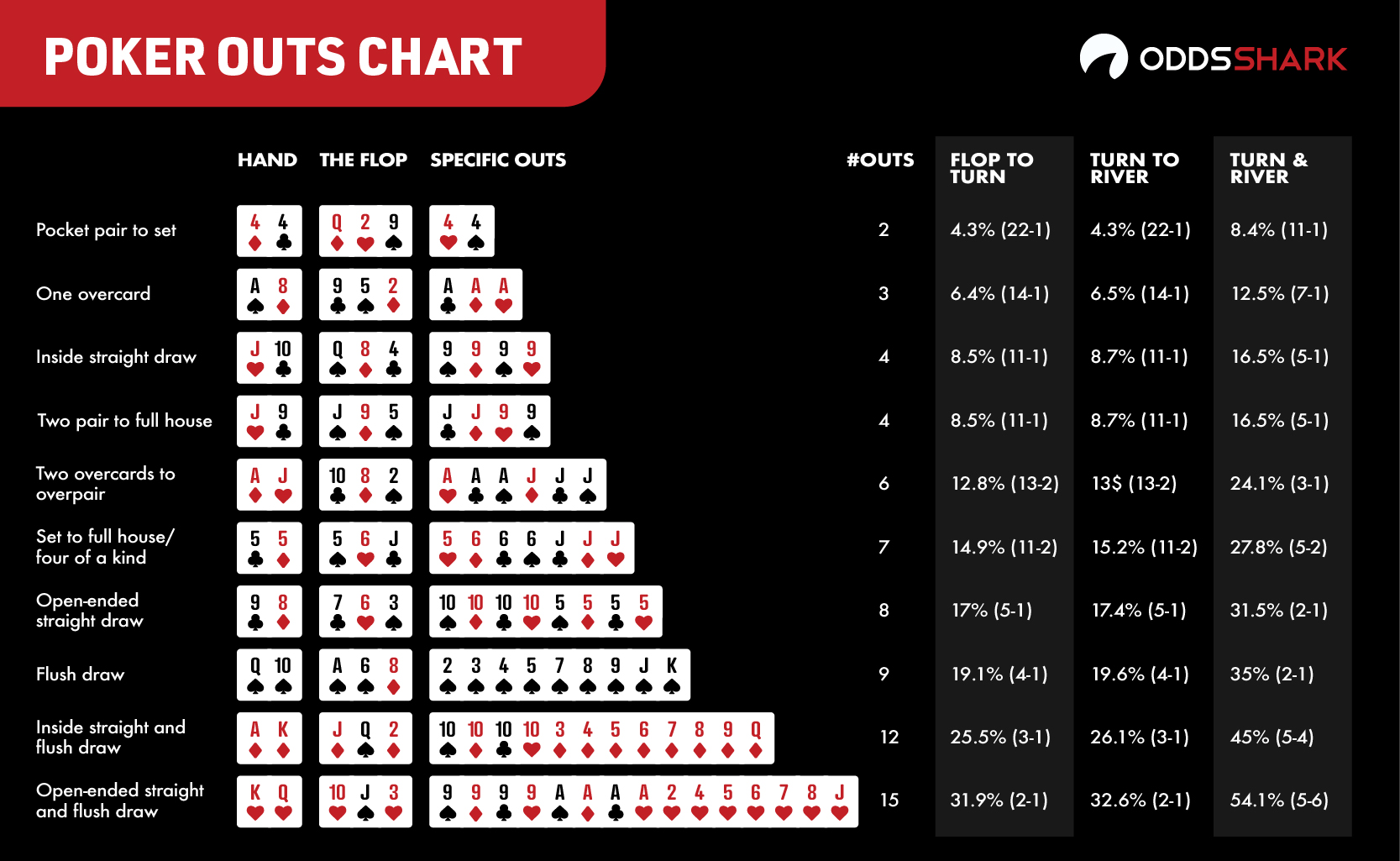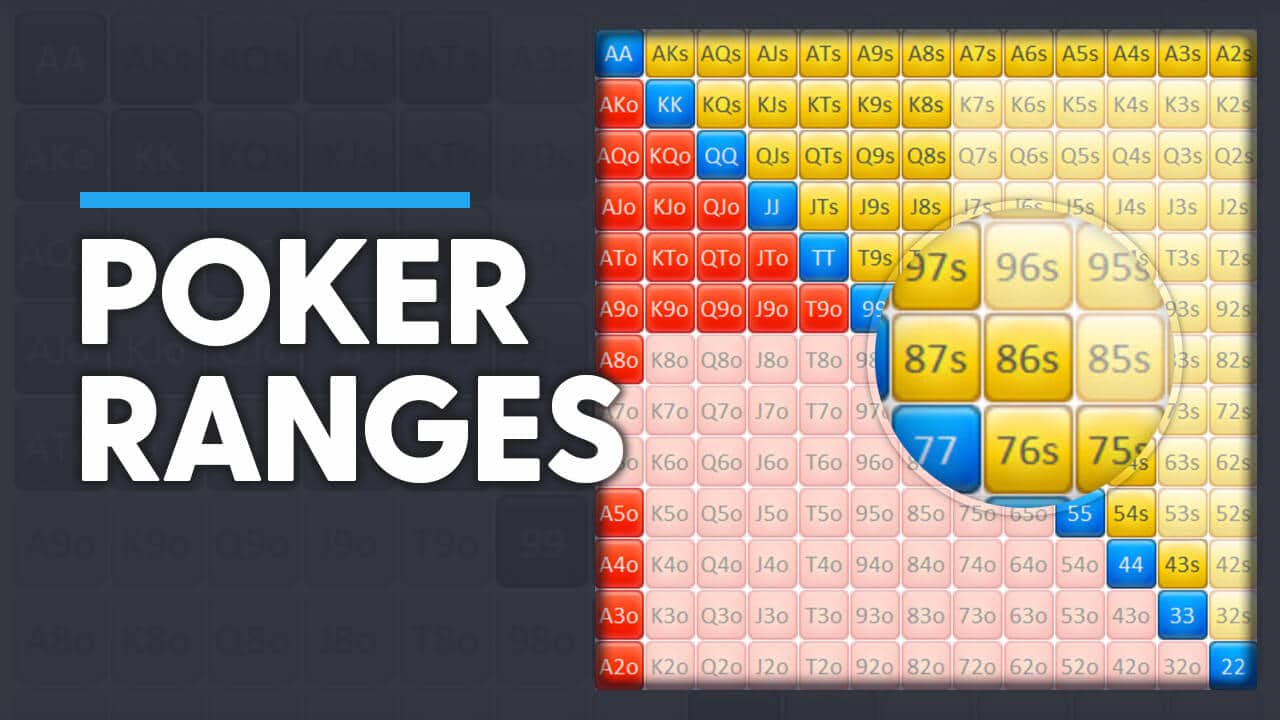What is a Poker Cheat Sheet?
Texas Holdem Poker Two Card Hand Frequencies. Both before and after the flop in any limit Holdem game, it is helpful to be able to make a reasonably accurate estimate of the types and numbers of playable hands that you are likely to be competing against. But there’s more to Texas Hold’em poker hands than just the river. You should also think about poker in terms of odds during every other stage of the hand, including pre-flop, the flop, and the turn. The clearer picture you have of what your odds are, the better your decisions. Poker hands odds & outs: a crash course-guide on poker odds, pot odds, probabilities & odds charts so you can win at Texas Hold’em at the tables or online. One of the most important things that a poker player should know is what their poker odds are in a given situation. There are no betting lines to choose from in poker like you get in the sportsbook or on a racing form, so. Six Plus Hold’em is an exciting and fun poker variant based on Texas Hold’em where the game is played with a deck of 36 cards as opposed to the usual 52 cards in traditional hold’em. Deuces through fives are removed from the deck giving the game its name Six Plus Hold’em/6+ or Short Deck Poker.
A poker cheat sheet is a guide to help you learn the absolute basic fundamentals to play solid poker in order to beat micro and low stake games. Like any endeavour, it takes time, experience and regular evaluation to become a master. The idea behind a cheat sheet is that you can refer to it easily to help you make better decisions than you would otherwise. While you have cheat sheets with poker and for example Blackjack, this is not real ‘cheating’. Cheating the casino is not allowed and can get you into trouble.
Hand Rankings
If you are new to poker, you will need to understand the proper hand rankings. The list below should help you understand the respective hand rankings.
Calculating Outs as Odds

To make better decisions, you will want to know the chances of improving your hand and reconciling that with the amount your opponent is betting. The table below should help you see, at a glance, the approximate percentage of you making your hand for the most common scenarios you will find yourself in. After a while, calculating your outs and converting them to odds will become intuitive. In the meantime, feel free to refer to this table.
Hand Selection – Open Raising
Choosing which hands to play is very important. It’s the first key decision of any poker hand. If you are starting out in poker. The most important thing is to play a selective hand range based on the position you are in. As you lack the post flop skills to profitably make marginal pre flop calls, you will need to be careful about the hands you play. The table below is a guide to hands you can open raise with, if you are first to enter the pot i.e. nobody has raised in front of you. Please note that the table assumes you are opening the hand ranges in the earlier positions too e.g. You open KJ suited in early position therefore you are opening it in mid position too.
Please note I have not assigned a hand range to open raise from the small blind with. I firmly believe this is the worst spot to open raise in Texas Holdem from and don’t think it would be wise to advise a wide open raise range from here. Instead, play very careful from there. Look to minimize how much you lose and let the strong hands do their “talking” so to speak.
Hand Selection – Calling Raises
As you won’t have the pre-flop aggression in the hand when calling a raise, it is important you are calling raises with hands that are at least as equal in value to the likely range your opponent is raising with and preferably with position on them. There is no cheat to knowing what hands you should call player A’s raise with. Instead, think about the type of player raising and act accordingly. In other words, if it is a loose player opening, you can widen the hands you call with as he is opening wider than a tight player. If it is a tight player opening, you should be looking to play less hands or hands that can break him and his premium hands e.g. low pairs.
As a very basic guide consider calling raises with the hands below.
- Any Pocket Pair
- A Q off suit
- A J suited
- A Q suited
- A T suited
- K Q suited
Hand Selection – Re Raising AKA 3 Bet


Starting out, I recommend 3 betting with AK suited, Pocket Queens, Kings and Aces. As you develop and gain experience you will certainly be re raising with other hands but this cheat sheet is purely for the new player playing micro/low stakes poker.
Texas Holdem Hand Odds
Post Flop Poker
Texas Holdem Pot Odds Chart
You will quickly learn that playing the flop, turn and river is complex. As you are playing a selective hand range to begin with, you will not be facing as many difficult situations as a more experience player. Check out some tips to follow below.
- Miss the flop, get out of the way
- Be wary of straight and flushes if betting gets large
- Bet 50% or more of the pot when you bet
- Don’t attempt crazy bluff bets when you are multi way
- Don’t slowplay your hands, people will call you down at micro stakes so less need for deception
- Bet your top pair or better hands
- Don’t get too attached to Ace King if you miss!
Conclusions
This cheat sheet is aimed at the new player coming to poker in 2020 who has no experience but wants to learn quickly. Understanding hand rankings, what hands to play and the basic odds are the most simple and fundamental skills to be a competent player, capable of winning at micro stakes. There is so much more strategy and complexity to Texas Holdem that can take years to master but we hope this cheat sheet will help you at the start of your poker journey. This sheet is designed to help poker players but there are other sites offering a complete guide to finding a new casino in 2020.
I hope you enjoyed this article. Feel free to contact us if you are interested in finding out how we can help you improve your game and bankroll in 2020. You can download our poker cheat sheet below for free or sign up to our poker training video membership by paying below. This gives you 12 months access to all video content for just £49.99.
Join Texas Hold’em Questions Poker Training Video Membership
Based on 4,000,000,000 simulated gamesUse at your own risk
(I'm terrible at Poker, and there could be a bug in my code)
Pre-Flop Hole Card Winning Odds/Probabilities:
Given hole cards XY in an n-player Texas Holdem game, with no cards on the table, what is the probability that XY will beat all other n-1 hole cards after the river?
Actually winning your hands depends on many more factors (as my poker buddies will be quick to point out!)—knowing when to fold on flop/turn/river (even if you started out well), your betting strategy (maybe you're good at bluffing people out), what you think your opponents have (this is probably the most important), the blinds, etc. Poker is complicated. These tables just tell you how good your hole cards are (statistically) just after the deal, which may help you decide whether it's worth paying for the flop or not. That is all.
Historical note:
These statistics were the result of a fun, personal coding project on the side during grad school at the University of Illinois. Enough people are finding this page useful, and so I've decided to keep the page up. May the odds be with you.
Ranked by Winning Percentage
10 Player9 Player
8 Player
7 Player
6 Player
5 Player
4 Player
3 Player
2 Player
Ranked by Wins+Ties Percentage
10 Player9 Player
8 Player

7 Player

6 Player
5 Player
4 Player
3 Player
2 Player
Check out a heat-map based visualization of these probabilities by Jeff Lowery
These statistics are © Apu Kapadia, 2005